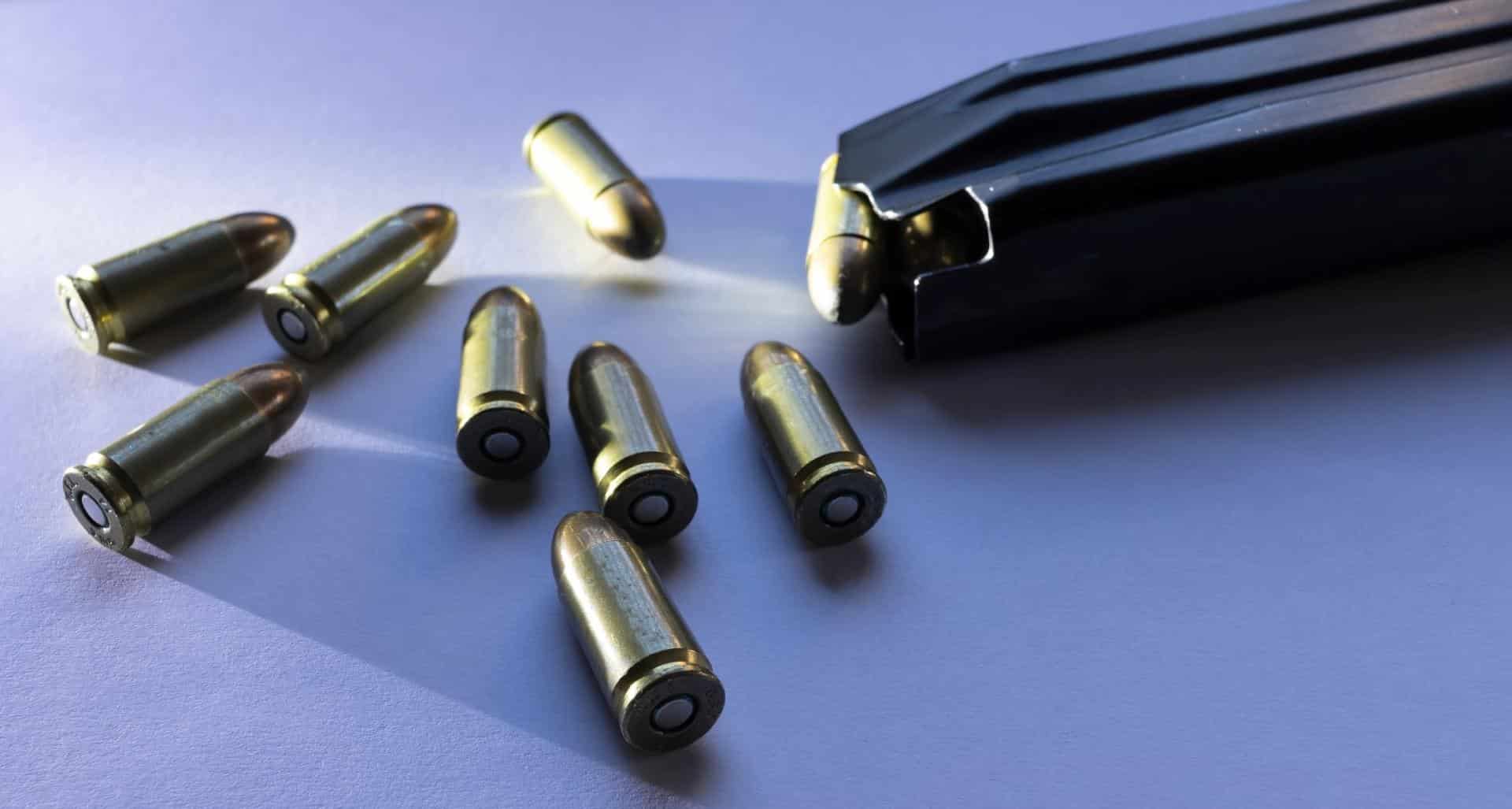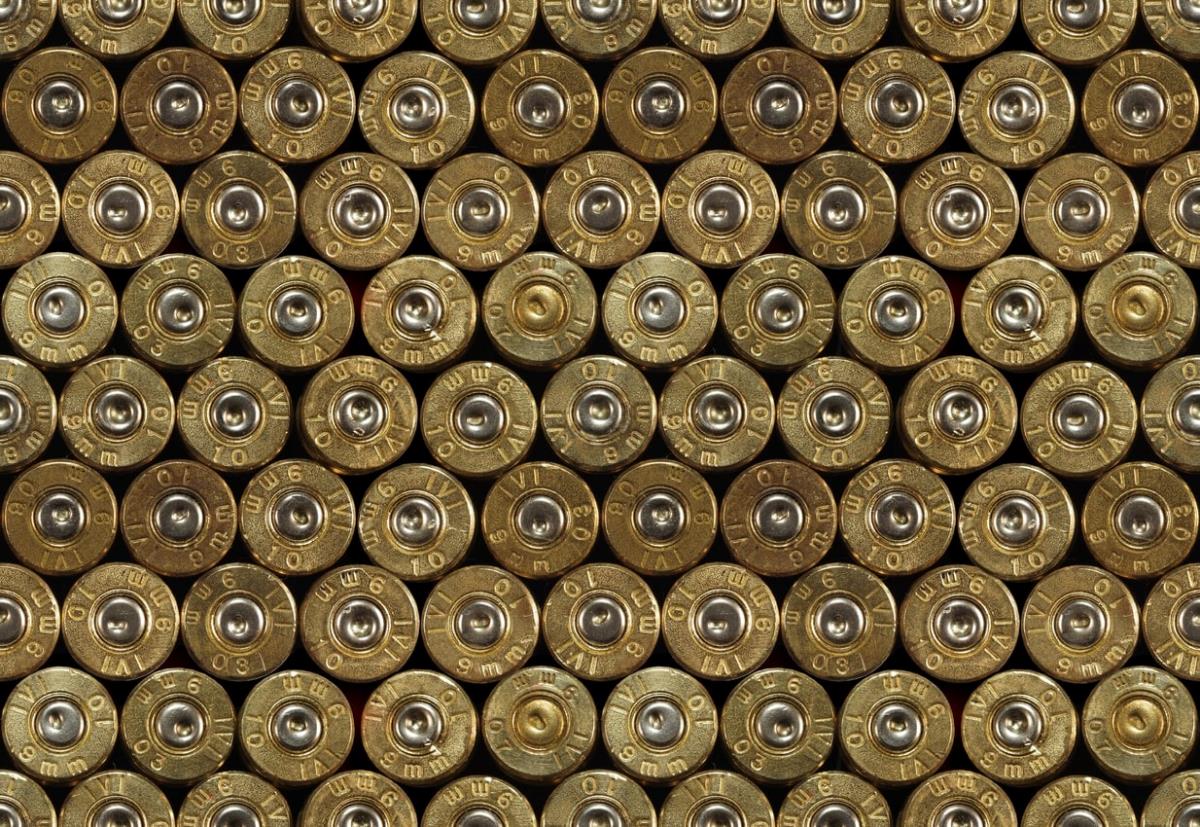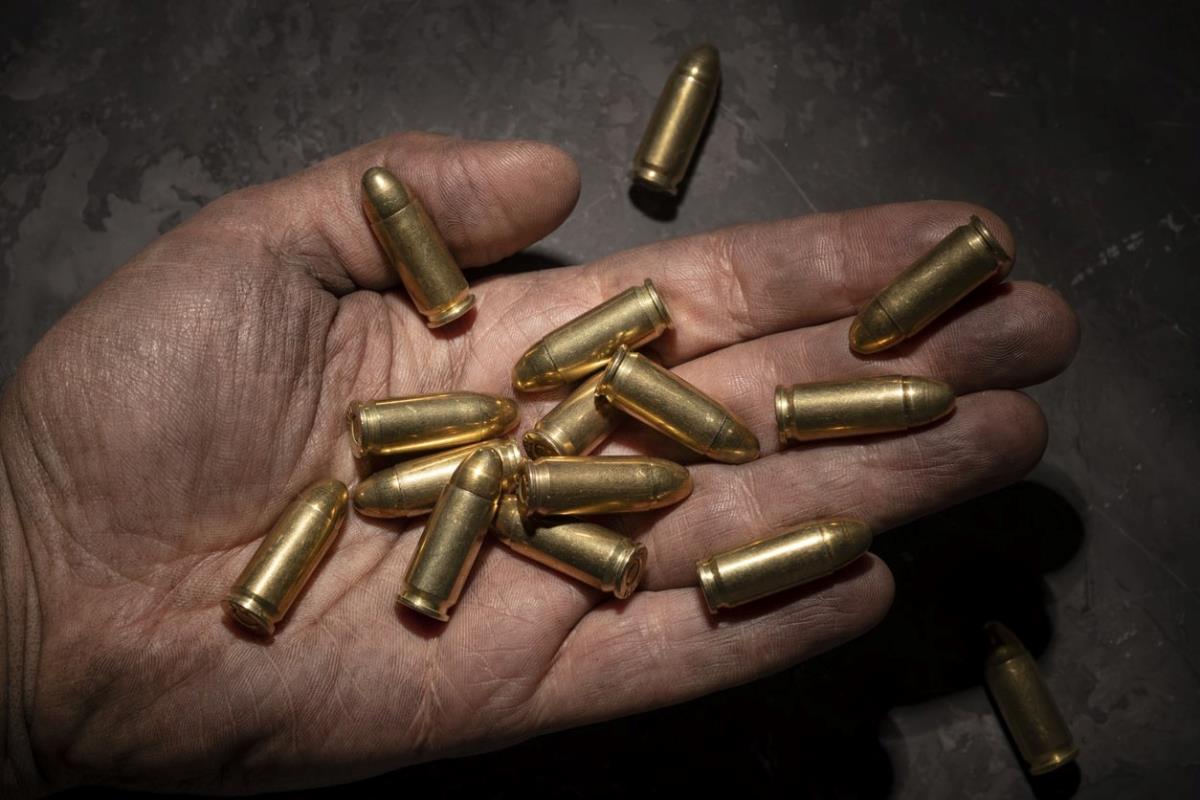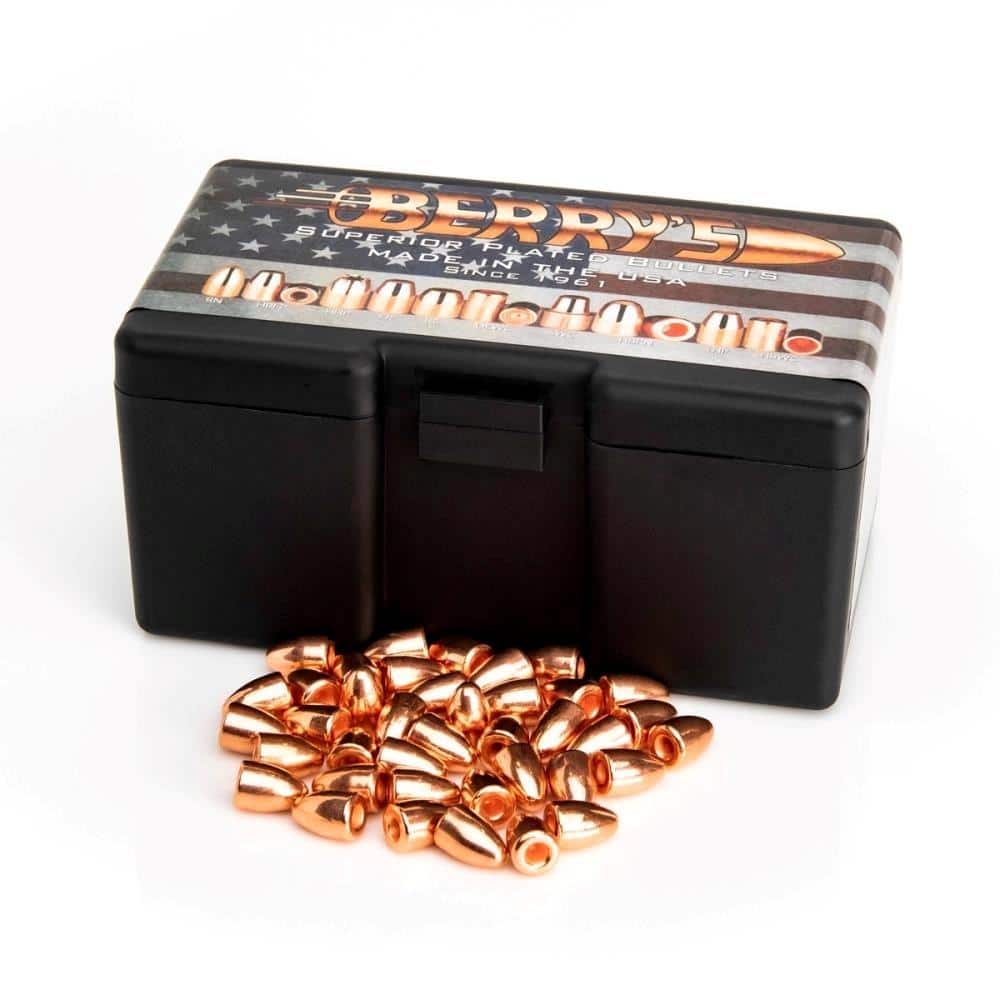Your cart is currently empty!

.32 ACP vs 9mm: A Breakdown
Choosing the right caliber for your handgun is a critical decision, whether you’re looking for a self-defense weapon or a recreational shooting companion. Two popular options that often come up in discussions are 32 ACP (Automatic Colt Pistol) and 9mm. In this article, we’ll dive deep into the details and compare these two calibers in terms of specifications, performance, applications, and cost. So, whether you’re a James Bond fan dreaming of his iconic Walther PPK chambered in .32 ACP or are just eager to learn more about these two calibers, let’s dig in and find the perfect fit for you.
.32 ACP vs 9mm: A Breakdown

CARTRIDGE SPECS
BULLET DIAMETER
Let’s start with the bullet diameter. .32 ACP, designed by the legendary John Moses Browning, features a bullet diameter of approximately .312 inches and is commonly associated with pocket pistols and semi-automatic pistols.
On the other hand, 9mm, also known as 9mm Parabellum, 9mm Luger, or 9x19mm, boasts a slightly larger bullet diameter of around .355 inches (or in plated bullets case, .356 inches). 9mm’s larger diameter provides a larger frontal area, potentially resulting in better terminal performance and creating a larger wound channel upon impact. This can be advantageous in terms of stopping power and incapacitating a threat effectively, which is why 9mm has been so widely adopted by both law enforcement agencies and civilians carrying for personal defense.
CASE LENGTH
.32 ACP typically has a case length of about 0.680 inches, whereas the 9mm measures approximately 0.754 inches.
C.O.A.L. (CARTRIDGE OVERALL LENGTH)
Moving on to overall length, .32 ACP usually clocks in at around 0.984 inches, while the 9mm has an overall length of about 1.169 inches.
MAX PRESSURE IN PSI
Let’s talk pressure. .32 ACP ammo operates at a maximum average pressure of around 20,500 PSI (pounds per square inch). On the other hand, the 9mm is a bit of a hotshot, with pressures reaching around 35,000 to 40,000 PSI.
VELOCITY/PENETRATION
Speaking of velocity and stopping power, when it comes to velocity and penetration, 9mm generally outperforms the 32 ACP. The combination of its larger case capacity, higher pressure, and larger bullet diameter allows the 9mm to achieve higher muzzle velocities and deeper penetration. This increased velocity and penetration can be advantageous in self-defense situations, ensuring that the bullet reaches vital organs and stops a threat effectively.
RECOIL
Now let’s talk about everyone’s favorite topic: recoil. In terms of recoil, the 32 ACP has the advantage over the 9mm Luger. .32 ACP generates less recoil energy compared to the 9mm. The smaller size and lighter weight of the 32 ACP round result in reduced felt recoil, making it an excellent choice for shooters who prefer pistols with minimal kick, shooters who want to carry a pocket pistol, or for those who are new to shooting. On the other hand, the 9mm, with its higher energy and pressure, produces more recoil. However, 9mm’s recoil is far from overwhelming and, with proper grip and technique, the recoil of the 9mm can be managed effectively.
MAGAZINE CAPACITY
When it comes to magazine capacity, the 9mm takes the cake. Due to its smaller size, the 32 ACP typically allows for fewer rounds in a magazine. Meanwhile, the 9mm offers higher capacity, which means more rounds at your disposal without having to reload. That’s extra insurance when it comes to defending yourself and more uninterrupted shooting time at the range.
.32 ACP vs 9mm: Applications

HUNTING
Now, let’s talk about hunting. While neither the 32 ACP nor the 9mm are considered ideal for hunting larger game due to their relatively lower energy and bullet weights, the 9mm can be used for small game or varmint control in certain circumstances where regulations permit. Of course, shot placement is key when using either of these calibers for hunting, so keep that in mind.
RECREATION
Both the 32 ACP and the 9mm can provide enjoyable shooting experiences for recreational purposes. However, the 9mm offers a wider range of options and versatility. Its popularity among shooters has led to abundant availability and a variety of ammunition choices. The 9mm’s versatility allows for various shooting disciplines like target shooting, competition, and plinking, making it a favorite among recreational shooters.
HOME-DEFENSE
When it comes to home defense, the 9mm is often the preferred choice. Its larger cartridge, higher capacity, and greater stopping power make it more suitable for neutralizing potential threats effectively. The 9mm’s increased energy and better terminal ballistics increase the chances of stopping an assailant.
In fact, 9mm is the most popular handgun round for concealed carry as well as for law enforcement agencies. Its adoption by organizations such as the German Army and Fabrique Nationale (FN) further solidifies its reputation as an effective self-defense caliber.
.32 ACP, while not as popular among law enforcement or for civilian home or self-defense purposes, can still serve as a viable option for those seeking a compact and low-recoil caliber for protection within close quarters. The fact that .32 ACP weapons tend to be smaller is also helpful for both concealed carry and convenient storage for home defense. However, there are certainly 9mm pocket pistols too, the recoil on them is just less manageable, even compared to larger 9mm pistols.
Shot placement and accuracy play critical roles in maximizing the effectiveness of either caliber in a home defense scenario.
.32 ACP vs 9mm Cost and Availability
In terms of cost and availability, the 9mm has the upper hand. Its widespread adoption by law enforcement agencies and armed forces worldwide has resulted in abundant availability and a wide range of ammunition options. The popularity of the 9mm has also created healthy competition among manufacturers, leading to competitive pricing and affordability.
While the 32 ACP is still accessible, it may have a slightly higher price point and a more limited selection compared to the 9mm. Additionally, the cost of ammunition for the 9mm is generally lower due to economies of scale and higher production volumes.
32 ACP and 9mm Bullets from Berry’s

Now, let’s talk about reloading. We offer high-quality plated bullets that bring some exciting benefits to the table. These plated bullets reduce fouling, increase accuracy, and deliver consistent performance.
For the 32 ACP, Berry’s has got you covered with their 71-grain plated bullets. This weight strikes a balance between penetration and recoil, allowing you to achieve solid performance while still keeping recoil manageable, especially for pocket pistols or smaller handguns.
For the 9mm bullets, we carry a variety of options. You can choose from our 115-grain, 124-grain, or 147-grain plated bullets. These different weights cater to various shooting preferences and purposes. The 115-grain bullets are perfect for target shooting, while the heavier 124-grain and 147-grain options offer better terminal performance and recoil control for self-defense applications.
Not only do our plated bullets deliver reliable performance, but they also come at a reasonable price. They are a cost-effective choice for reloading enthusiasts who want consistent results without breaking the bank. Reloading your own ammunition gives you the flexibility to customize your loads and tailor them to your specific needs.
Closing Thoughts
In the debate between the 32 ACP and the 9mm, it’s important to consider factors such as bullet weight, muzzle velocity, stopping power, magazine capacity, and recoil. The 9mm, with its larger size, higher energy, and versatility, generally holds the advantage in self-defense scenarios and law enforcement applications. However, the 32 ACP can still fulfill specific needs, particularly for shooters who prioritize low recoil and compact firearms.
Ultimately, the choice between these calibers depends on your preferences, shooting goals, and intended applications. Remember, proficiency, shot placement, and training are key to maximizing the effectiveness of any caliber. Stay safe, practice regularly, and enjoy shooting responsibly!
